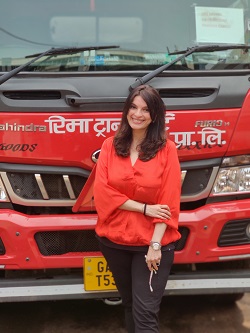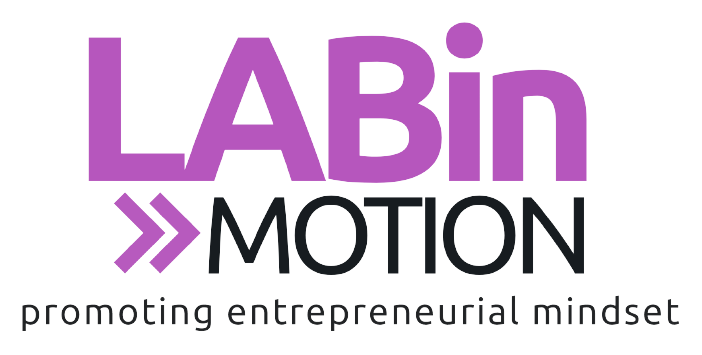The logistics industry, once male-dominated, now has women making significant contributions as leaders and disruptors in the past decade, with patriarchs of some established businesses passing on the baton to women of the family. Reema Jogani and Tanvi Naik, the second generation leadership of the three-decade-old Reema Transport Pvt Ltd (RTPL) are prime examples.

Established in 1983 as a partnership firm between Kothari and Naik families, Mumbai-based RTPL is a full-blown transporter with a fleet of over 100 trucks, providing services in both ambient and reefer categories across western, central and southern India. Its rapid growth over the last two decades has been achieved through meticulous planning, acquisition and grooming of skilled resources, scalable infrastructure and a conducive work environment. Reema (daughter of RTPL Chairman Ashok Kothari,) and Tanvi (daughter of RTPL Managing Director Dilip Naik ) have had a major hand in driving this growth journey.

An all-male company till recently, RTPL now has Reema and Tanvi as Directors, but they call themselves “team players”, united by the passion and resolve to leave their mark on the business bequeathed to them.
Here they share their course so far, the challenges they faced and how they shattered the glass ceiling in the sector.
NEW BEGINNINGS
Reema, who did her Post Graduation Diploma in Business Administration (PGDBA) majoring in Marketing, worked with companies like KPMG, E&Y, and media houses like Star Movies, National Geographic and Bloomberg UTV, but her entrepreneurial genes never left her in peace. Excited to join the family business in 2011, she recalls: “I always wanted to step into my father’s shoes professionally and aspired to join and grow the family business. Like every daughter, my father was my first hero and has been my role model. He inspired me to take over the family business.”
Born into a road transporters’ home, Tanvi grew up watching her father set up offices and welcome each truck in the Reema Transport family. “Yes, it is not the most attractive industry for a woman but watching my family business grow and meet challenges faced got me intrigued,” she says.
After pursuing her masters in Logistics & Supply Chain management from Manchester, and working in Mumbai as well as in Manchester with multinational logistics and freight forwarders, she headed back home and joined the business in 2015.
BEATING GENDER STEREOTYPES
Reema and Tanvi make no attempt to downplay the challenges they faced in proving their ability.
For Reema, acceptance of a woman who spoke her mind out in a male-dominated industry was both an external and internal challenge. “Initially, there was considerable resistance in accepting me as part of top management. I had to prove my worth by working on the ground and executing orders rather than just giving them. The then senior management was all male and convincing them to bring about change was a challenge…,” she recalls.
Externally, it was a different challenge. Clients were nice to her as they were surprised to see a woman in this line but she knew they wondered whether she would actually be working with them or was just the company’s public face. “Over time, they realized that I was as much into operations as in client-relationships… As a result, I believe I have gained their respect, trust as well as their admiration,” she adds.
For Tanvi, moving from UK to India and then into road transport was quite a shift but she coped. “One of the top challenges I faced was getting the people to hear me out. Firstly, being a woman, secondly, young, thirdly my petite structure made the first impression very challenging. However, I strongly believe that respect needs to be earned. Consistency, attention to detail/awareness and patience (CAP) has been my motto. You keep trying until you succeed and results will eventually bring your team to believe in you and your work,” she says.
Moving from professionally-managed large company environments to a small family-managed firm was an experience in itself for Reema. RTPL, though more professionally managed than others of its kind, was still a homegrown business that depended more on people than processes. “Since I was now a Director (from a mid-level manager in previous jobs), the areas of responsibility were much wider and required a concerted effort to master. Since, things were not given to me on a platter, I had to work my way to understand both the big picture as well as all the nuances of logistics business,” she says.
BRIDGING THE GAP BETWEEN THE OLD AND NEW
When Reema joined, RTPL had loose processes and systems and she introduced robust SOPs, along with cutting edge technological automation, which encountered resistance and needed convincing of staff for adoption.
“This was not an easy task as I had to do a lot of homework – learn and educate myself by spending a lot of time discussing matters with top management as well as working side-by-side with the staff across functions to understand the practical, day-to-day aspects of running the business,” she says.
But what both acknowledge is that the senior Kothari and Naik were always supportive, backed their daughters joining the family business, believed in their ability to take the legacy ahead, and were always available for guidance when needed.
FEWER WOMEN ENTREPRENEURS IN LOGISTICS SECTOR
When Reema and Tanvi joined the industry, there were a few women, but now, they say, things are changing.
Women entrepreneurs earlier never saw logistics as a feasible option with major barriers to entry, including a huge capital requirement, pre-conceived notions about the public dealing required, no recognition like other industries, and of course, the male domination.
Tanvi says that this unattractive picture of the unorganised ‘desi’ logistics sector is a major factor in deterring women, but is outdated. “Times are changing and the logistics sector has some organised players that are influencing a change,” she adds.
Reema agrees, “I see a lot of youth and women joining the industry. The industry needed a mindset change and now you see the change… there are many women who work in accounts, and billing departments, but still there is scope for more women entrepreneurs to look at this industry”
NEED TO PROMOTE WOMEN LEADERSHIP IN LOGISTICIS
While few women choose a career in logistics, it has been observed that women have brought about change in perspective and are changing the face of the industry and thus, there is an immense need to boost their presence.
Women at the top need to ensure that there are women at every rung, making use of their multitasking skills, as well as their empathy and compassionate view which helps to bring a more human angle to complex situations and adds depth to businesses.
The practice of companies institutionalising processes and value systems to perpetuate their male leadership is gradually changing to a more balanced and integrated work place. However, some more work needs to be done for women, they say.
“Ensuring opportunities for external exposure and internal visibility to women employees enables them to counter the benefit of networking men have at work place thus ensuring positive affirmation,” says Reema.
There should be workshops and short courses for new women entrepreneurs to understand the logistics industry better, benefit from the experience of experts and brush their skills to think out of the box, she says.
Tanvi adds there is a need to create more and more platforms for women entrepreneurs to express, interact, collaborate and share the experiences.
“Attend seminars, reach out to experts and talk to them. People love to share knowledge and their experiences, learn from them,” suggests Reema.
LIFE LESSONS
Reema and Tanvi feel there is nothing a woman cannot achieve if she believes in herself and her capabilities.
“The Logistics industry is becoming more technology focused and professional. If you are up for the challenges, then don’t wait for a single day,” says Reema, whose benchmark is Biocon founder Kiran Mazumdar-Shaw’s quote: “Entrepreneurship is about being able to face failure, manage failure and succeed after failing”.
Tanvi adds, “You must be prepared to work hard, be it any sector. Learn from scratch and respect your colleagues because the people around you are very important to help you prosper.”





